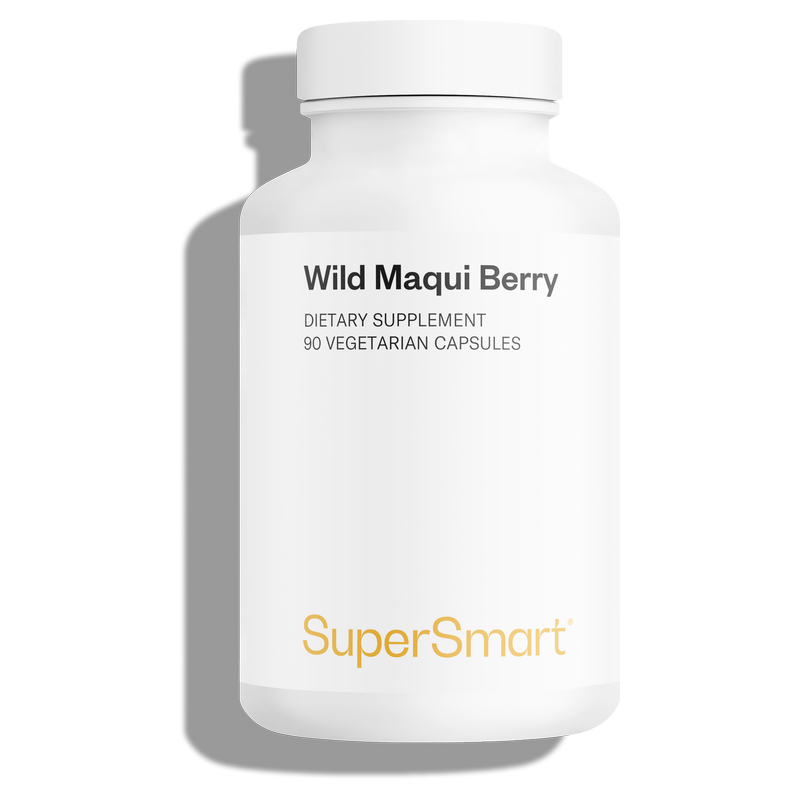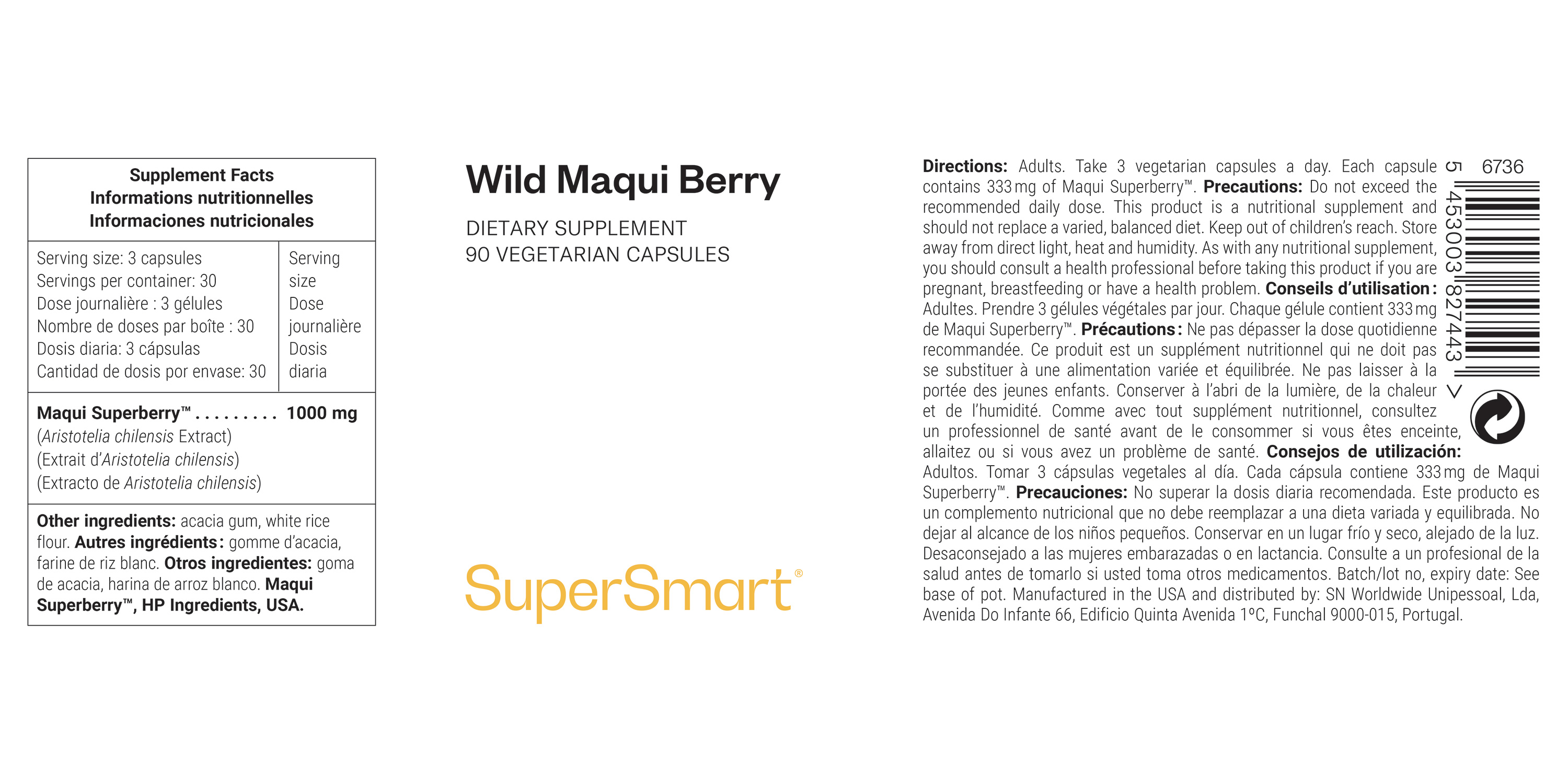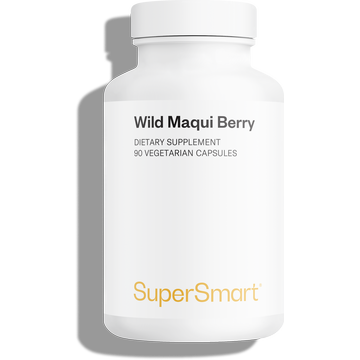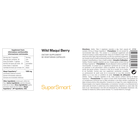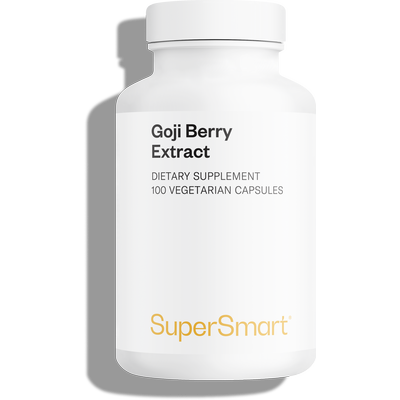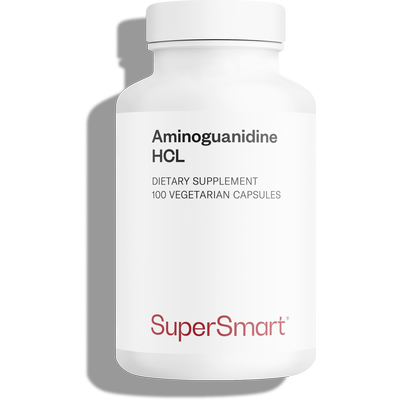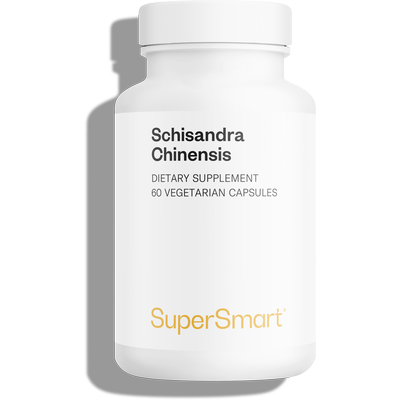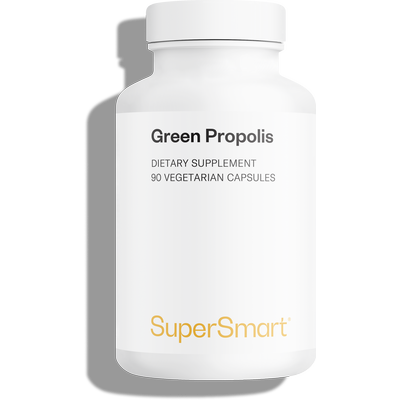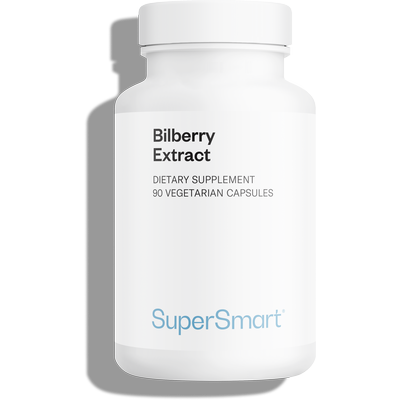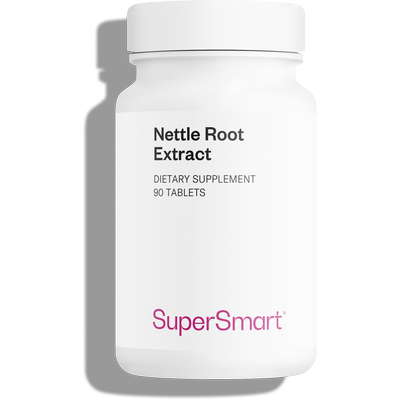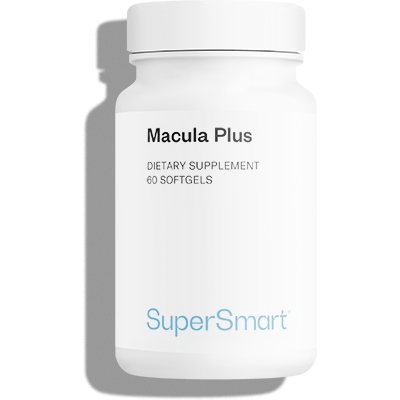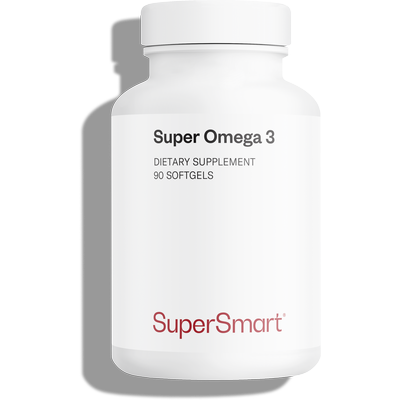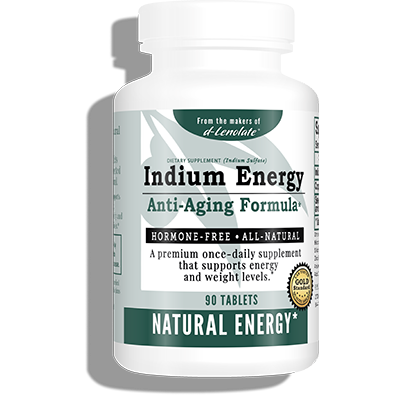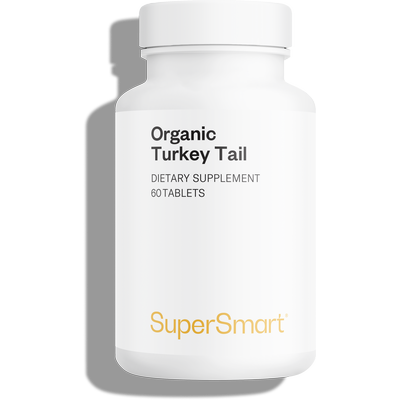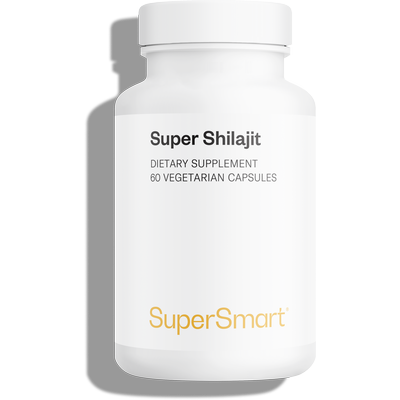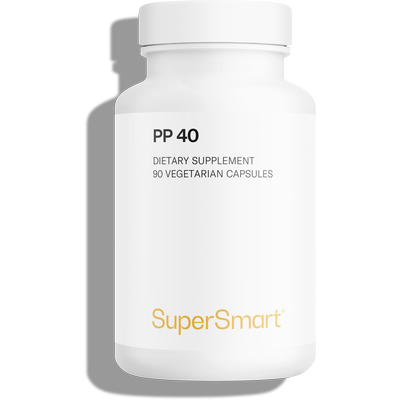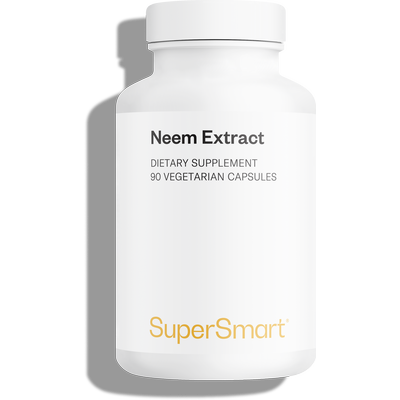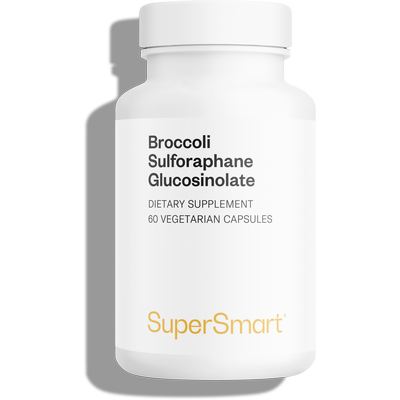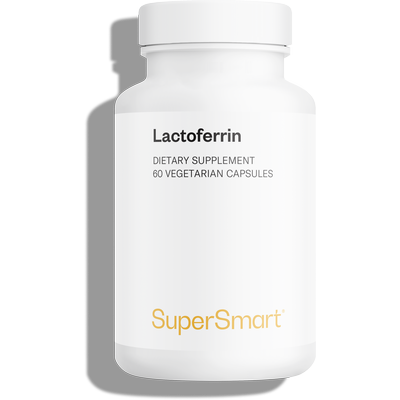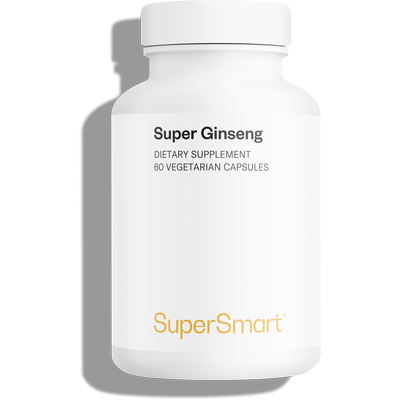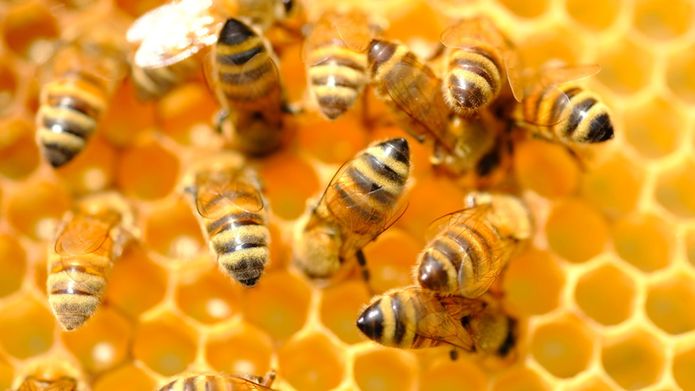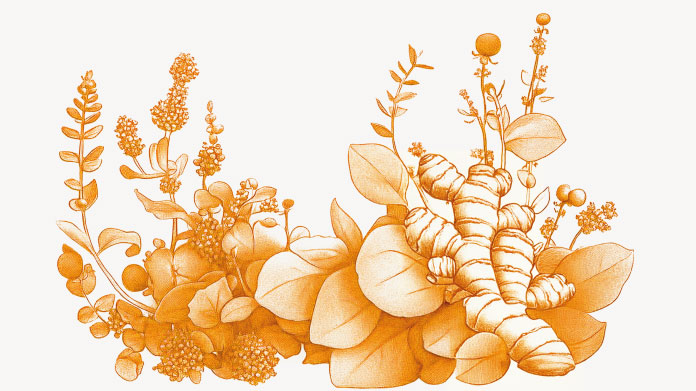Complete your selection
Small berries with big effects
The supplement Wild Maqui Berry has been developed to offer the medicinal properties of the small berries of this evergreen shrub. Its scientific name is Aristolochia chilensis, but it is more commonly known as maqui. Indigenous to South America, this shrub has been used for many centuries in traditional Chilean and Peruvian medicine, where its leaves and berries are used for treating a wide range of illnesses. The therapeutic virtues of maqui berries are due to their antioxidant potency.Antioxidant superberries
Maqui berries are recognised for their antioxidant properties - and with good cause, since they have one of the highest ORAC (Oxygen Radical Absorbance Capacity) values. With a value higher than that of goji or acai berries, maqui berries are particularly effective at eliminating free radicals, the highly reactive elements that cause considerable damage in the body. Alongside their high antioxidant content, maqui fruit also boast a nutrient-rich composition, including several vitamins and minerals, hence their reputation as superberries, superfruits or indeed superfoods.Protective effects of maqui berries
Maqui berries’ antioxidant potency gives them many medicinal virtues. In quenching excess free radicals in the body, they help fight premature ageing of cells and prevent the onset of certain diseases. Oxidative stress is known to cause significant damage at a cellular level, promoting the development of certain diseases. According to current scientific data, maqui berries may be particularly effective at helping to prevent certain cardiovascular diseases. The cardio-protective effect of these superfruits may also be boosted by a cholesterol-lowering action: consuming maqui berries may reduce levels of ‘bad’ LDL-cholesterol.Wild Maqui Berry, optimal dosage
The benefits of these superfruits can now be obtained with this new Wild Maqui Berry supplement from SuperSmart. Each capsule contains an optimal 333mg of maqui extract (Aristolochia chilensis), with a suggested dose for this antioxidant supplement of three capsules, spread across the day. For optimal efficacy, it can also be combined with the powerful antioxidant complexes AntiOxidant Synergy and OptiVision.What is in Wild Maqui Berry
Any questions?
This product’s capsules are composed of HPMC (hydroxypropyl methylcellulose), a plant substance derived from cellulose. HPMC is widely used for medicines and dietary supplements. It contains no animal ingredients, is recognised as safe by health authorities and is considered more sustainable than synthetic alternatives.
june 24 2025
Didn't notice any changes. Also, they sent me product near expiration date.
july 6 2023
Bueno bueno
april 7 2025
Cela a l'air de marcher
It seems to work
 see the translation
Translated by SuperSmart - see the original
see the translation
Translated by SuperSmart - see the original
november 1 2024
J'ouvre la gelule et mets dans yaourt avec goji berry
I open the capsule and put it in yogurt with goji berry.
 see the translation
Translated by SuperSmart - see the original
see the translation
Translated by SuperSmart - see the original
may 23 2024
Je suis amateur de fruits rouges, j'ai été séduite par la provenance du Wild Maquis et des explications le concernant. De plus, il est très agréable au goût car je l'enlève parfois des gélules.
I am a fan of red fruits, and I was captivated by the origin of Wild Maquis and the explanations about it. Additionally, it has a very pleasant taste as I sometimes take it out of the capsules.
 see the translation
Translated by SuperSmart - see the original
see the translation
Translated by SuperSmart - see the original
Need help?
You may also like

